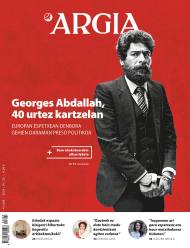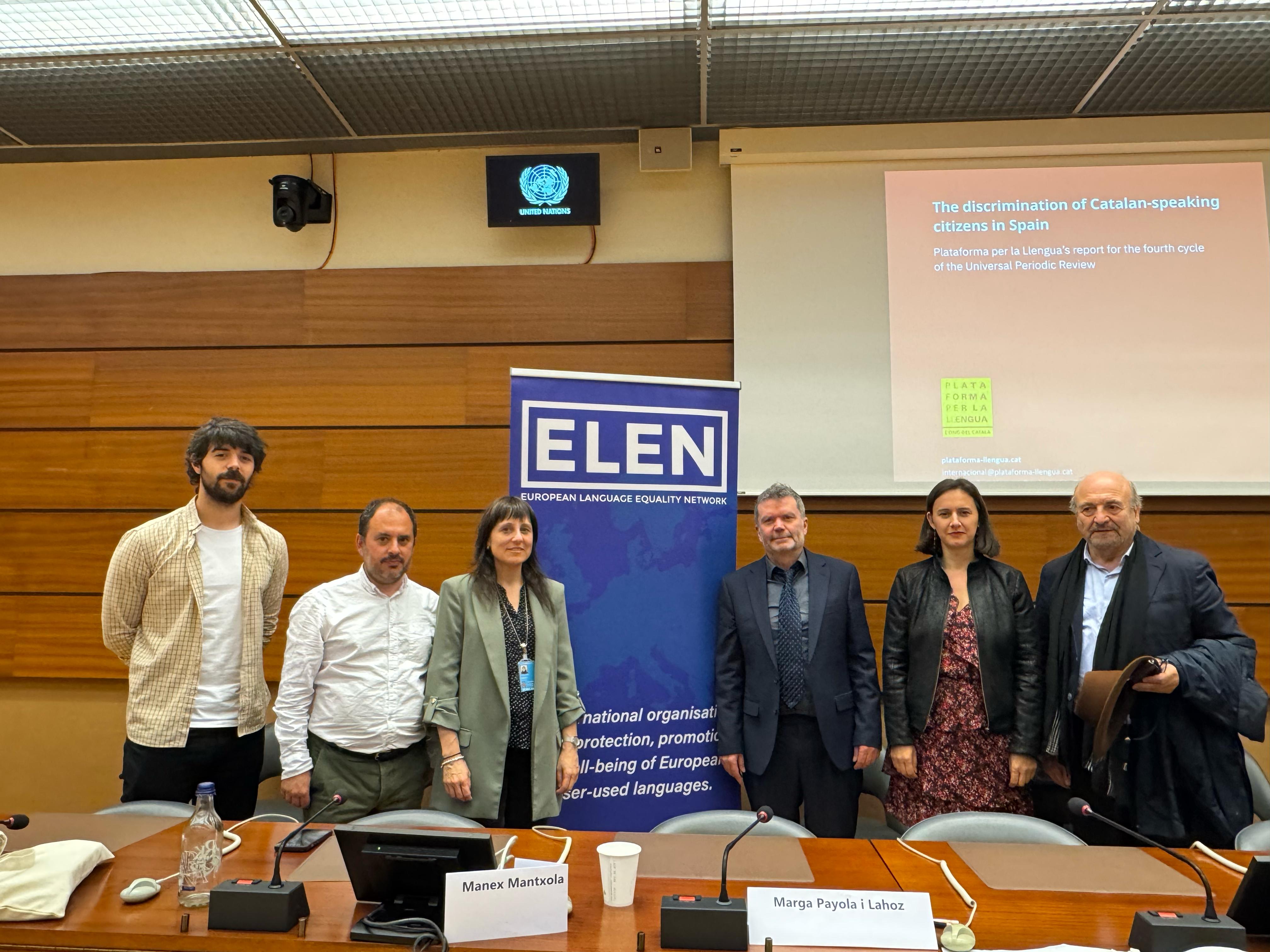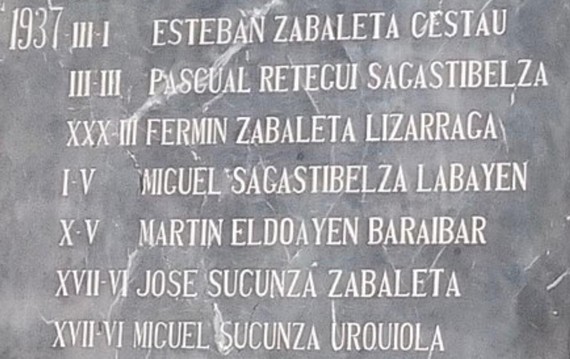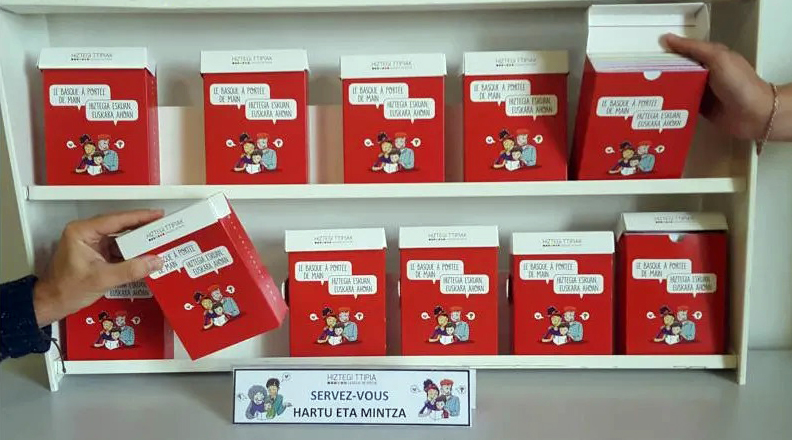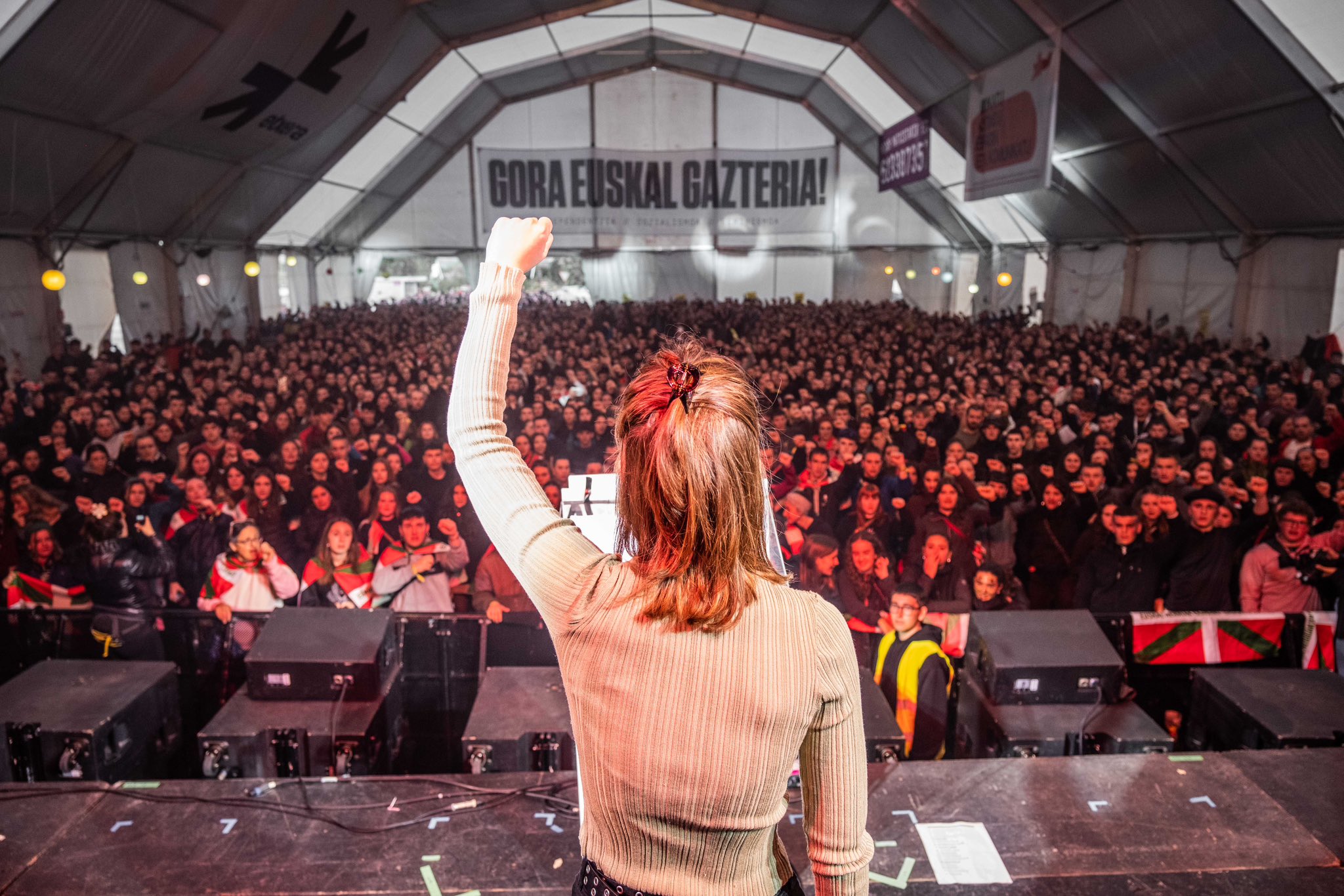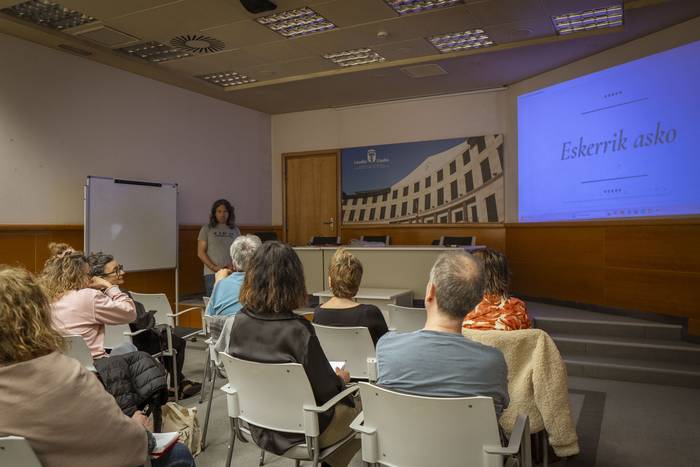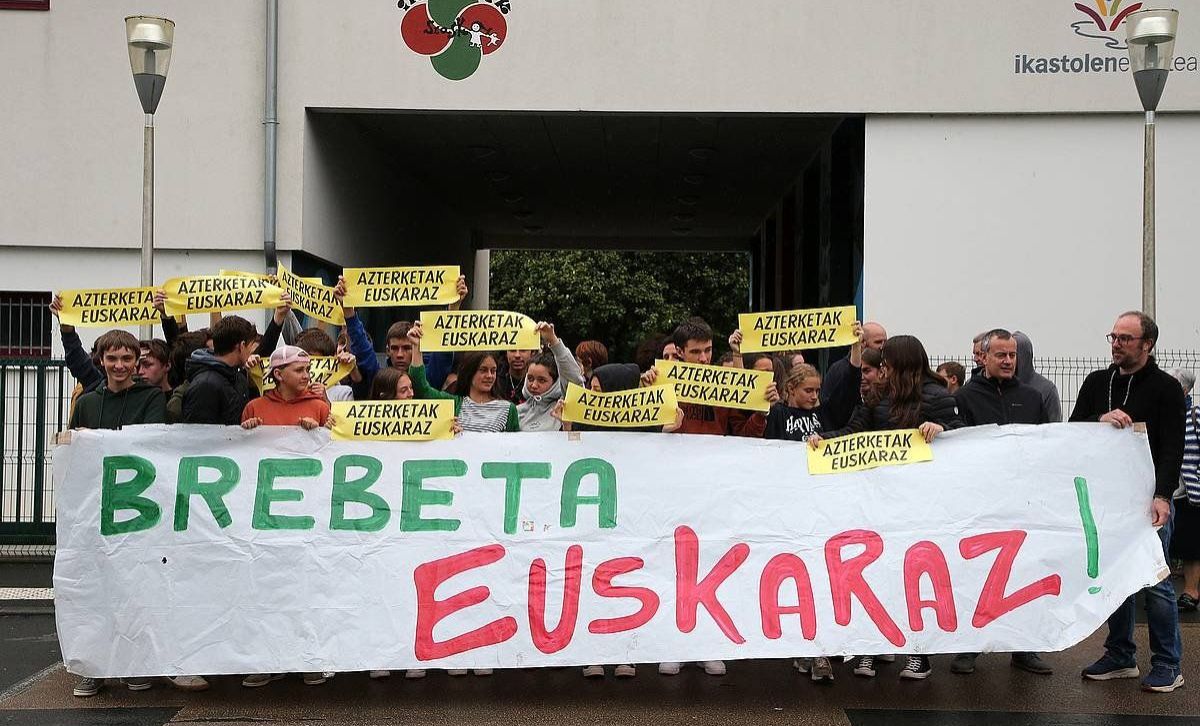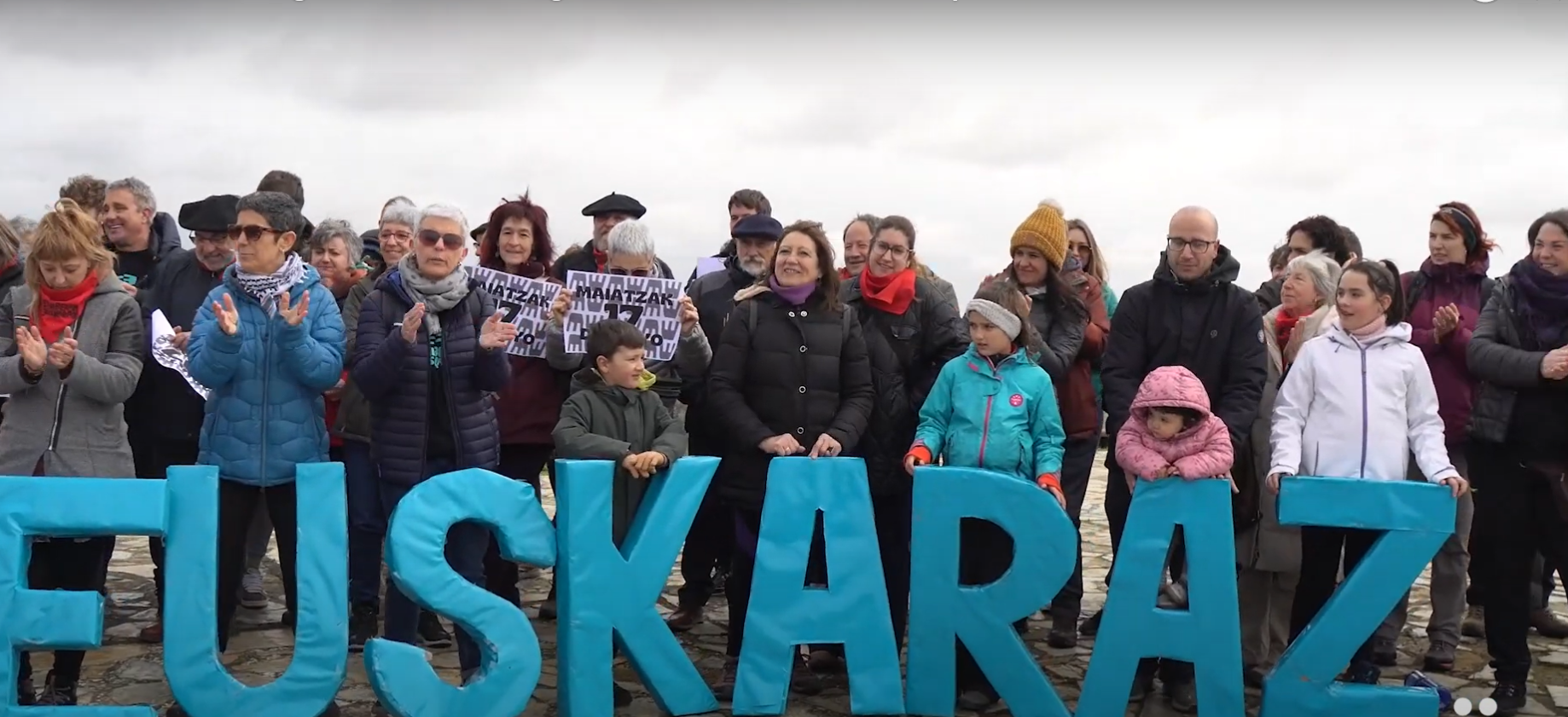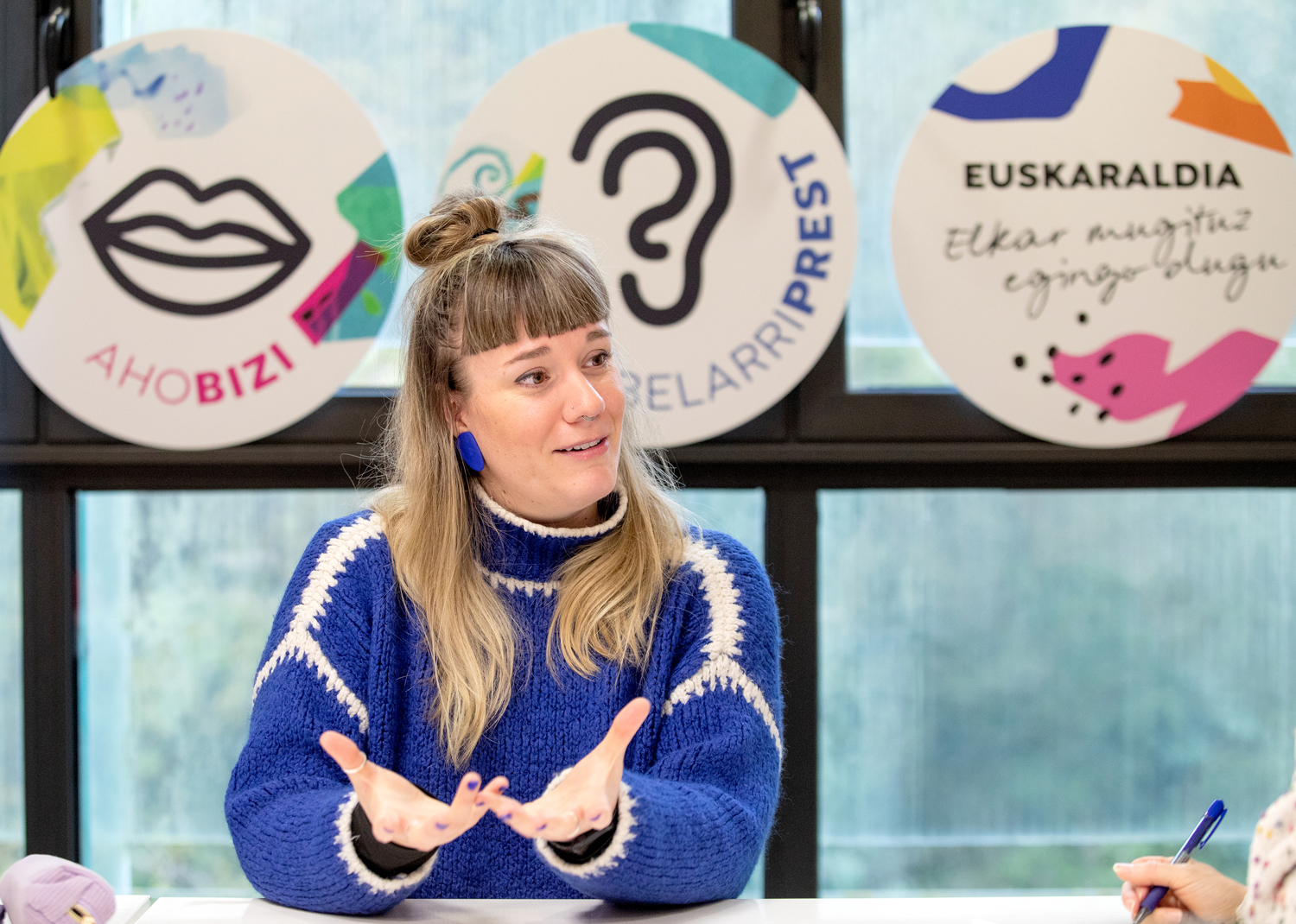"Young people want to talk about Euskera"
- Ainhoa Lasa Agirre (Leuven, Flandria, 1976) is a member of the Emun cooperative. In the summer courses of the UEU, in July we met him talking about socio-linguistic education. She has been performing interventions in the classrooms of 4th ESO youth for a dozen years. These are complete projects that work together in all the educational centers of the municipality. They are currently located in Zarautz, Zumaia, Beasain, Hondarribia, Eibar and Pasaia. She also advises on these projects.

What do you mean when you say that you have to give sociolinguistics in the
classroom?We don't use the word eman, and not just the sociolinguistics, but we think you have to work on sociolinguistics and psycholinguistics. We take the subject to class and help the students talk. They lack knowledge and we give them information so that, when talking about the speakers and the linguistic communities, they have strong triggers for dialogue.
How many prejudices have you broken in the more than a dozen years of work?
A lot. One that has been broken to me: by forbearance they do not speak Basque. I would say it's in many people's heads. That is not the case. They, for example, define the new Basque from another place, have their shame and wounds, and do not so consciously in Spanish. Adults have injuries and others. They have a big backpack. But they've helped me understand what it is for them to be young and Euskaldun. They have a great diversity in conceptions and definitions. I don't know how to say that. I put myself in place, and you oyster! What would I do? What is being Euskaldun recently arrived? What is it to have a lot of newcomers in class? What is it to have in class a colleague who is ashamed to speak in Basque? What is not to confuse the environment with the center? I mean, at school they're all Basque, and maybe not on the street. I also went like this: If everyone is Basque, why not in Basque? There are no real, intelligible impotence, but there are others, and I think sometimes we ask them for heroism as well.
"It is up to adults to ask questions so that we can maintain a quality dialogue with young people"
What do you mean?
It is not the same to talk about Zarautz as about Eibar. Look, a prejudice that has been broken to me: the more you count on sociolinguistics, the more you will know, and so you will speak in Basque. Over time, we've realized that by giving less content, we're talking more and more about the person. It is about asking the following questions: What's wrong with him? Where are you? What do you want? What do you want? Rather than forgiving, some say: “If I were in your situation I would.” They share the discourse of society “we have to do more in Basque”, if they have a sense of responsibility, but they do not have the tools, forces or weight to turn this issue back. The situation is not very different from that of adults.
Young people may have been more stigmatized. Some teachers find it difficult to
see them, although I try to provoke them, and they say: “Are they all Basque and why don’t they? We tell them to do so.” Among the professors there is everything, those who ask to speak in Basque, those who explain the importance of doing it in Basque, those who tell them to the extent of doing it in Basque... The students of the last group listen in Spanish in the hallway and pass by next door, or the student answers the professor in Spanish and the teacher considers it normal. It can be of despair whatever you want...When you tell him
to speak in Basque, the professor feels strong and forgets the strength he has among his colleagues.
.jpg)
Do you mean the teacher's company?Even though the students speak
in Spanish, the teacher is able to continue in Euskera, but that same thing in the plaza, in his crew, maybe he wouldn't. When you have your students in your head, you can't see who's out of that environment. There is a great demand. The student in the class is the one you are on the street. The student is not at work, is with friends, has other needs, has a need to stay well, wants to agree with others...
Any further prejudice?
"They're upset to talk about Euskera," and I've seen in class that's not the case.
"Here comes saying we need to make more Basque?" they wonder when you go.
That's right. But on the one hand, they're guided because a person comes from outside and they don't have to teach the lesson of history or physics. They also think: "He's an adult. He will tell us to speak in Basque! ". But in the conversations there is no sentence, “we come to ask you what you do, why you do it”, so we tell them, “we do not come to tell anyone if they have to speak in Basque or not”, that you do it in Spanish, that you do it in Basque, guai, in English... But we want you to do what you do consciously.
What happens is that when they talk about their own experiences they turn on. They want to talk about it. They want me to hear you. Oyster, this is not so easy!” they say and want someone to understand it. The goal we set ourselves at the beginning was – and we still follow – to see how we managed to have a one-hour conversation on the subject. It's a whipped job, we ask them, we go even deeper. Everyone wants to participate and everyone participates. The answers are interesting, even if they are not very innovative. Every year we have gifts. There are those who make clac and the clac influences the whole class.
"Our goal is not to change language at the age of 16, but to simplify decision when they have the capacity and the strength to decide."
I remember what you said to me in the course of Eibar: listen, understand...
Don't judge ...
And accept them as they are.
More than that, it tries to understand what it's like to be 16 in every context. They're not the same. The immediate environment also has a significant weight. Some have a question of fidelity. What should I be faithful to? The message I receive from my family, which serves me to adapt to my class... It's not just judging, it's trying to be empathetic. It is not accepting the student and he/she is already asking who he/she is, what is going on...
That has a lot of psychology.
Totally. We're not psychologists. It is sometimes said that students must be given the opportunity to ask and empty. I think if we don't pick it up, we won't open melons. Empty it to let it go? No. When you ask the questions, it opens up the possibilities in the classroom, and each of you will tell what you want and then what you're able to manage.
If you do not demand to be a hero to those who speak Basque best in the Castilian speaking areas or to those euskaltzales.El who are not
in most cases is marked. One thing I'm going to tell you, in general, is more positive than the speech in class what we collect in the ratings. They will not make the alarm of Euskera before the professor! But if you have the weight of responsibility, of the will or of the will, I don't know what it is, but a kind of "if others did it too". You ask those of Vitoria or those of Zarautz how they would do it if they went to Oñati and they say it, "in Basque". It is said by those who have a lot of difficulty in Euskera and have a lot of ease. The same thing that Euskaraldia has taught us: yes, we want, but we want the plaza to be in Euskera so that we too can do it in Euskera. I want to do it like everybody else does, and if it's in Euskera, I know I do that speech. Most Basques and Basques want it, effortlessly.
.jpg)
You said earlier that you have gifts, that is, that every now and then young people are clad. Examples?
We were playing to match goodies and languages. One guy, who did nothing in Euskera, said: sweet is like languages, maybe we don't taste a taste or we haven't tried it in a language, and we don't know whether we like it or not, and you think I don't like to speak in Euskera. He was the class leader and everyone was astonished. Will it then change language habits or not? I don't know, 15 years is not the time to show up in front of
the demás.Una girl, who had just arrived from Murcia [Spain], apparently, ended all our programs and then spoke to the class: "Do you have this and don't speak Basque? I want to learn. I speak in Basque." That girl, since then, has been spoken in Basque. This requires a great deal of courage and clarity. Let these gifts influence you. Because our goal is not to change the language at the age of 16, we think we're sowing, but when they have the ability and the strength to decide, it's easier to make the decision.
Of course I was going to ask him what his goal was.
We say: Don't think you're going to start speaking in Basque! Our goal is to understand that language is part of identity and not a rule that must be complied with. We tell the young people that Euskera and Castilian are part of them and we ask them why one is ashamed and the other is not. It's not fair to them.
Has the faculty interiorized that the knowledge/awareness/use chain will not necessarily be fulfilled?
Now they're my goggles. I feel that some teachers are desperate and think that the harder we squeeze, the more we get. The other side is also "useless what we do, because they're not going to do it." I see them in this fight, and I also expect them: "Tell me what I have to tell the students to speak in Basque." I mean, tell me what I have to do for someone else to do it. In some of the villages that we're in, there's not much difference between the use of young people and adults, sometimes more young people, sometimes less, and that's also about the linguistic behaviors of adults. We are also builders of landscapes and linguistic values of the people. What do you do to relate differently to languages? Do you have the strength to continue in Basque when your friends speak in Spanish? Maybe not, and you're another age. For adults, it is up to us to ask questions so that we can maintain a quality dialogue with young people.
Antton Kurutxarri, Euskararen Erakunde Publikoko presidente ordearen hitzetan, Jean Marc Huart Bordeleko Akademiako errektore berriak euskararen gaia "ondo menderatzen du"
You may not know who Donald Berwick is, or why I mention him in the title of the article. The same is true, it is evident, for most of those who are participating in the current Health Pact. They don’t know what Berwick’s Triple Objective is, much less the Quadruple... [+]
Is it important to use a language correctly? To what extent is it so necessary to master grammar or to have a broad vocabulary? I’ve always heard the importance of language, but after thinking about it, I came to a conclusion. Thinking often involves this; reaching some... [+]
Adolescents and young people, throughout their academic career, will receive guidance on everything and the profession for studies that will help them more than once. They should be offered guidance, as they are often full of doubts whenever they need to make important... [+]
Maiatzaren 17an Erriberako lehenengo Euskararen Eguna eginen da Arguedasen, sortu berri den eta eskualdeko hamaika elkarte eta eragile biltzen dituen Erriberan Euskaraz sareak antolatuta
Ansorena´tar Joseba Eneko.
Edonori orto zer den galdetuz gero, goizaldea erantzungo, D´Artagnanen mosketero laguna edo ipurtzuloa, agian. Baina orto- aurrizkiak zuzen adierazten du eta maiz erabiltzen dugu: ortodoxia, ortopedia, ortodontzia... Orduan (datorrena... [+]









